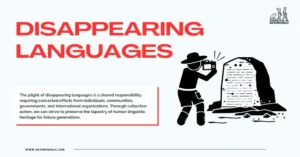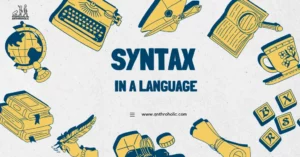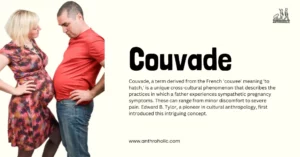AI Answer Evaluation Platform Live Now. Try Free Answer Evaluation Now
Magico-Religious Functionaries
Magico-religious functionaries are a vital component of traditional societies, serving as intermediaries between the physical and spiritual realms. These individuals often hold a unique position, offering spiritual guidance, healing, and ritualistic services [1].

Understanding Magico-Religious Functionaries
Magico-religious functionaries include a broad spectrum of roles, such as:
- Shamans
- Priests/Priestesses
- Diviners
- Witches
- Sorcerers
- Medicine men/women
These individuals often possess unique abilities or knowledge, setting them apart within their societies [2].
Shamans
Shamans are known for their ability to communicate directly with the spiritual world, often through altered states of consciousness. They perform essential tasks like healing, divination, and maintaining harmony between the human and spirit realms [3].
Priests and Priestesses
Priests and priestesses act as intermediaries between people and deities, often overseeing religious ceremonies, rites, and teachings. They typically adhere to a structured religious system and are generally recognized by a broader institution [4].
Diviners
Diviners are those who predict future events or discover hidden knowledge using various methods like astrology, geomancy, and dream interpretation. They offer guidance and insight, often employed to make important decisions or understand uncertain situations [5].
Witches and Sorcerers
Witches and sorcerers are believed to possess magical powers used for various purposes, from harming enemies to securing love. However, in many societies, these roles have negative connotations, associated with harm and misfortune [6].
Medicine Men and Women
Medicine men/women, often found in indigenous cultures, blend spiritual insight with practical knowledge of medicinal plants and techniques. They serve as healers, using a combination of physical remedies and spiritual practices [7].
Role and Function
These functionaries play several roles:
- Spiritual guidance: They guide individuals and communities in religious or spiritual matters.
- Healing: They heal physical, emotional, and spiritual ailments through various methods, often combining natural remedies with spiritual practices.
- Mediation: They serve as a bridge between the physical and spiritual realms, often resolving conflicts and maintaining harmony.
- Ritual facilitation: They oversee and perform religious ceremonies, rites, and rituals [8].
| Functionaries | Roles |
|---|---|
| Shamans | Spiritual guidance, healing, mediation |
| Priests/Priestesses | Spiritual guidance, ritual facilitation |
| Diviners | Spiritual guidance, mediation |
| Witches/Sorcerers | Varied, often negatively perceived |
| Medicine men/women | Healing, spiritual guidance |
Significance in Society
The importance of magico-religious functionaries in society lies in their ability to navigate the complex web of human and spiritual relationships. They provide vital services, often contributing to social cohesion and cultural continuity. Furthermore, they play a key role in maintaining societal norms and values, reinforcing the moral framework and social order [9].
Contemporary Significance and Criticism
In modern times, while the prominence of these functionaries may have diminished in some societies, their roles are often integrated into new contexts, such as in the practice of modern paganism, new age spirituality, and complementary and alternative medicine.
However, these roles can also be a source of controversy. In some societies, the practices associated with magico-religious functionaries, particularly witches and sorcerers, have led to accusations, persecution, and violence. The integration of these roles into modern contexts is also often met with skepticism and criticism from both scientific and religious communities [10].
Comparative Study of Magico-Religious Functionaries
The various types of magico-religious functionaries across different cultures reveal the vast diversity of spiritual practices worldwide. For instance, a shaman’s role in Siberian cultures might differ substantially from that in North American indigenous cultures.
Table 1 illustrates the regional distribution and roles of some of these functionaries:
| Functionaries | Regions | Primary Roles |
|---|---|---|
| Shamans | Siberia, North America, Southeast Asia, Africa | Healing, mediation, divination |
| Priests/Priestesses | Global (various religions) | Ritual facilitation, spiritual guidance |
| Diviners | Africa, Asia, ancient Europe | Divination, mediation |
| Witches/Sorcerers | Global | Varied, often negatively perceived |
| Medicine men/women | Native American cultures, Africa, Australia | Healing, spiritual guidance |
Such diversity reflects the breadth of human spiritual experiences and the wide range of methods employed to understand and interact with the spiritual realm [11].
Modern Adaptations of Magico-Religious Practices
While the traditional forms of these practices remain alive in many cultures, adaptations have emerged to accommodate changing societal contexts. Today, you can find individuals practicing neo-shamanism in urban areas, or diviners using Tarot cards for their predictions. Likewise, the knowledge of medicinal plants used by medicine men/women has found its way into modern herbal and alternative medicine [12].
These modern adaptations suggest that while societies evolve, the fundamental human quest for spiritual understanding and healing remains a constant [13].
The Future of Magico-Religious Functionaries
In an increasingly globalized and scientifically oriented world, the future role of magico-religious functionaries will continue to evolve. While some might foresee their marginalization, others argue for their enduring relevance. Many see an increased interest in indigenous knowledge systems and spiritual practices, particularly in the realm of mental health and well-being.
However, the challenge remains in balancing the preservation of these practices with ethical concerns such as cultural appropriation and exploitation. As such, understanding and respecting the cultural context and original purpose of these practices is of paramount importance [14].
Conclusion
Magico-religious functionaries serve an integral role in many societies, offering unique services that intertwine the physical and spiritual worlds. Their significance, both historically and in the contemporary world, underscores the enduring importance of the spiritual dimension in human society.
References
[1] Eliade, M. (2004). Shamanism: Archaic techniques of ecstasy. Princeton University Press.
[2] Steiner, R. (1993). Anthroposophy (A Fragment): 1910. Rudolf Steiner Press.
[3] Lewis, I. M. (2003). Ecstatic religion: An anthropological study of spirit possession and shamanism. Routledge.
[4] Cross, F. L., & Livingstone, E. A. (2005). The Oxford dictionary of the Christian Church. Oxford University Press.
[5] Peek, P. M. (1991). African divination systems: Ways of knowing. Indiana University Press.
[6] Ginzburg, C. (1983). The Night Battles: Witchcraft and Agrarian Cults in the Sixteenth and Seventeenth Centuries. Johns Hopkins University Press.
[7] Vogel, V. J. (1970). American Indian Medicine. University of Oklahoma Press.
[8] Turner, V. (1967). The Forest of Symbols: Aspects of Ndembu Ritual. Cornell University Press.
[9] Pritchard, E. E. (1963). Witchcraft, Oracles and Magic Among the Azande. Clarendon Press.
[10] York, M. (2003). Pagan Theology: Paganism as a World Religion. NYU Press.
[11] Eliade, M. (2004). Shamanism: Archaic techniques of ecstasy. Princeton University Press.
[12] Hoppál, M. (2005). Shamans and Traditions. Akadémiai Kiadó.
[13] Walsh, R., & Grob, C. (2005). Higher Wisdom: Eminent Elders Explore The Continuing Impact Of Psychedelics. State University of New York Press.
[14] Langdon, E. J., & Wiik, F. B. (2010). Anthropology of Indigenous Knowledge Systems. Brill.




